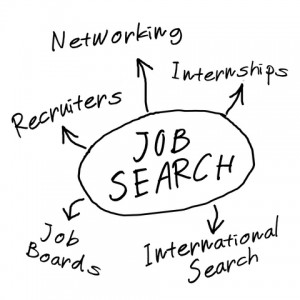Out of the whole process of finding a job, which consists of several stages, people generally find interviews to be the most dreadful. However this shouldn’t be the case, with the right mind frame and attitude you will find that there is nothing to fear when it comes to job interviews.
I will be sharing 4 insights that will give you the competitive edge at job interviews.
Handing Curveball Interview Questions
So what are curveball questions? They are the type of questions that you can’t really prepare for.
- What is your definition of a brand?
- What has been the low light of your career?
- What does the word ‘insight’ mean to you?
The main reason they ask you these types of questions is to put you on the spot. In most cases there is no real right or wrong answer. In fact they probably don’t know the answer themselves. They just want to see how you handle the pressure.
Solution
The best way to approach is to simply ‘avoid getting flustered’. Pause and think for a moment about the question, and there is nothing wrong in doing so. Take the question in the spirit that it’s meant to be taken and provide a reasonable answer.
In the worst case scenario where you don’t know the answer is to simply say ‘I don’t really know the answer to that question but I am intrigued to know what it is’.
By doing so you are being honest and transparent. Above all you are showing the attitude of having an interest in learning.
End of the day we are all human beings and no one knows the answer to every question.
Asking Questions
It’s important to bear in mind that interviews are a 50 – 50 situation. The picture is that you are looking for employment and they are looking for an employee.
Just like they ask you questions, you can, should and must ask questions from them too. Note: It’s not to say that you should be asking 50% of the questions!
Here are a Few Guidelines:
- Ask them questions to get more clarity on the role that you will be doing and how important it is to the organisation
- Enquire what the company’s values, principles and policies are.
- Similarly to how they would ask you ‘where do you see yourself in 5 years time’ you may ask them what the organisation’s vision is for the next 5 years.
Another good approach is to find out how the company handled tough times. For instance what challenges they faced during the recession period and how they overcame it.
By asking questions you are portraying confidence and enthusiasm. Plus your awareness of the company only gets better. Furthermore they will be happy to answer your questions since they are proud of their organisation, its vision and how they overcame hardships.
Towards the end of your interview a very good question to ask is “What other concerns or reservations do you have about my ability to carry out this role?”
By asking this question you get a very clear idea of where you stand. You get a feel for what they thought about you. Plus if it happens to be that they have any concerns, you can answer them straight away
Expressing Your Opinion
After doing your research about the organisation you should have a good idea about their history, products / services / projects, target market, competitors etc. The reality is that everyone else who you will be competing against would have done the same. Having an opinion is what is going to give you the edge.
Once again there is no right or wrong opinion but what matters is that you go into that interview room with an opinion and what matters even more is that you have sufficient facts to back your opinion.
Here are a Few Guidelines:
- It could be on anything really.
- The way they provide their services
- Their methods of advertising
- Should they be using social media as a potential platform to find new business.
- Is there something that can be learnt from their competitors.
- Other areas in the market to target, add on sales or merchandise
- Any constructive feedback, room for development and growth etc.
Expressing an opinion can be very effective and powerful. What you have said may not be taken aboard but the fact that you made an opinion is very significant. It is also a simple way in which you can get them thinking. “Hmmmm this person has got a point….” This method will certainly make you a cut above the rest, brings in that ‘x’ factor and shows that you are not another crab in the bucket.
Bringing your A-Game
Before you leave home for the interview, it is vital that you are in the right emotional state – confident, calm and charismatic. That feel good state that we all like to be in. We will have our own unique ways of doing this
Here are a Few Guidelines:
This could be:
- Your morning routine
- Meditation
- Listening to your favourite music
- Listening to motivational speeches
- Doing some push ups. Etc
Identify what yours is and carry out that activity to reach that peak performance state. Effectively, when you walk into that interview room they will just know. You will be radiating that energy, enthusiasm and confidence.
Apply these insights for your next job interview; they are certainly going to give you the edge to be more competitive.
Good luck!
Author Bio
Chirathu Liyanage – Public speaker and Blogger with a passion for self development, aspiring to help people in life.



